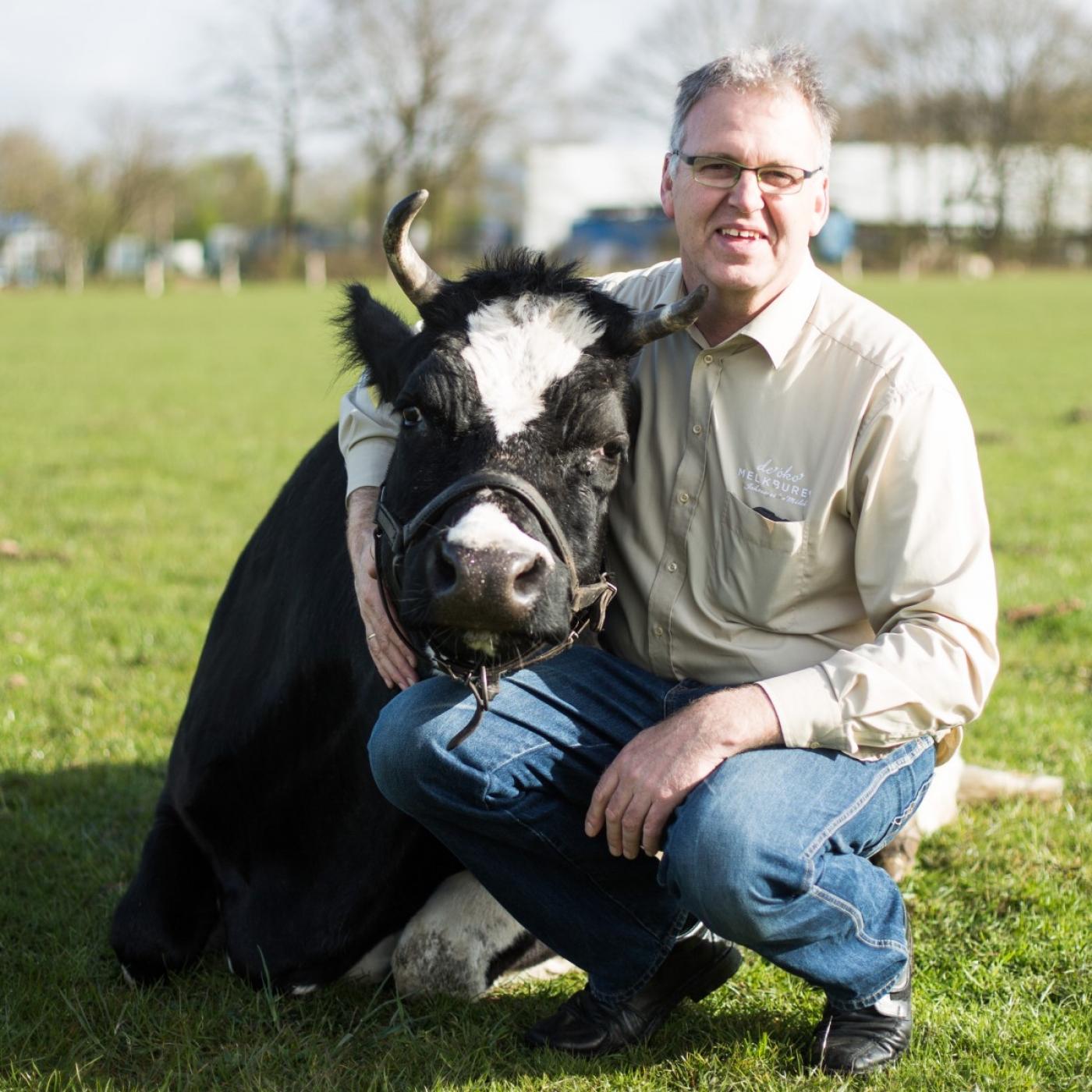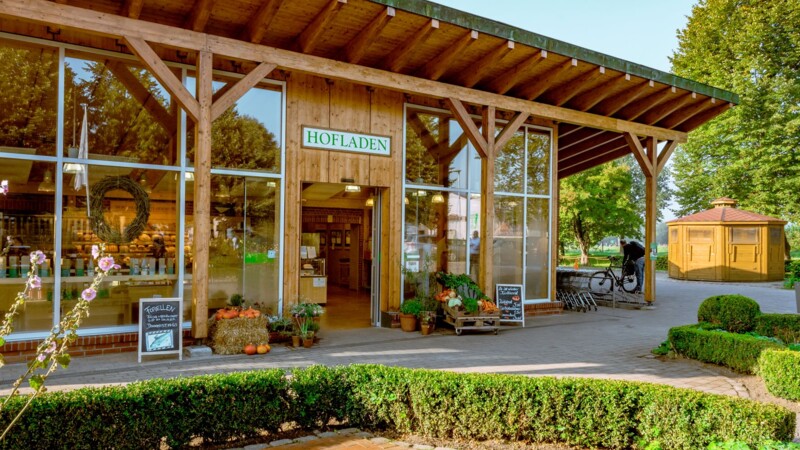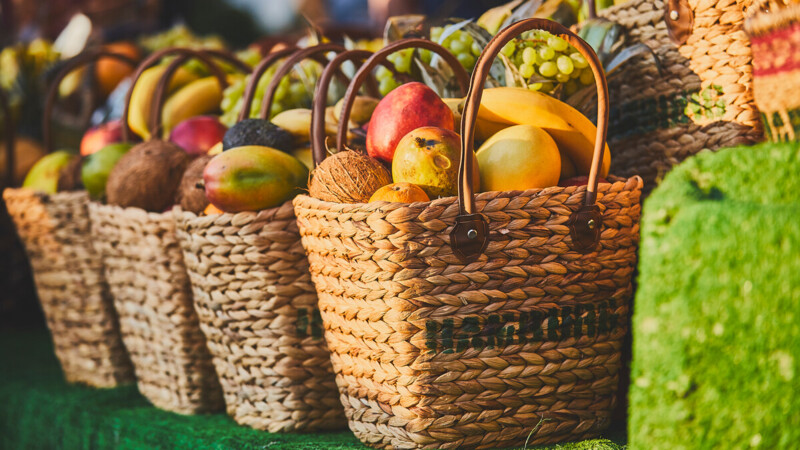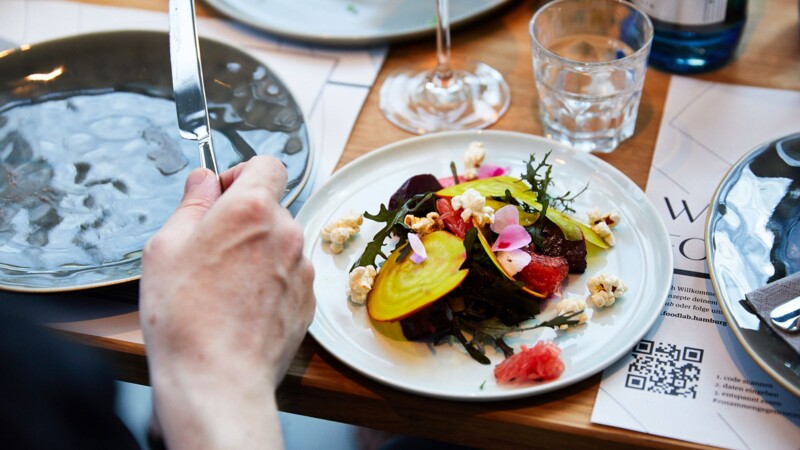In 2002, Hans Möller took over his parents' farm in Lentföhrden, north of Hamburg in Schleswig-Holstein, and converted to organic farming. The addition of holiday flats and a small farm shop soon led to a flourishing business. But the take-over of the local dairy by a large Scandinavian corporation stopped it in its tracks. The corporation's lack of interest in organic dairy products prompted the 57-year-old to found "De Öko Melkburen" with two other farmers, Achim Bock and Heino Dwinger. Nowadays, their small dairy in Horst is equipped with state-of-the-art technology and new jobs have been created. Since 2012, the milk from 180 cows has been heated to 72 or 75 degrees, packaged and delivered straight to shops in Hamburg and the surrounding region. "The milk never travels more than 100 kilometres," said Möller, Managing Director of "De Öko Melkburen", which is north German for dairy farmers.
Organic farmers banking on short distances and transparent marketing
Three organic farmers and their "De Öko Melkburen” dairy in the Hamburg Metropolitan Region won the "Production and Marketing" category of the national organic farming competition this summer with seasonal dairy products. Cem Özdemir, Germany’s Minister for Agriculture, pointed out: "The award-winning organic farms demonstrate impressively how economics and ecology go hand in hand and successfully. “ The growing popularity of organic farming is leading to a surge in consumer awareness. Nowadays, around 76 per cent of consumers in Germany check the origin of food and whether it is regional, according to a survey by the Federation of German Consumer Organizations.
Farmers relying on new technology and short distances
Taste dependent on fat content
Milk tastes differently depending on the season. "That has to do with the fat content and it can fluctuate between 3.5 and 4.2 per cent depending on the animals' fodder. They graze on pasture all year round, but in winter they are fed dried grass. Grass in February is entirely different from that in autumn," said Möller. The farmers use this peculiarity to their advantage and market their seasonal milk with an advertising agency in Hamburg. Packaging changes every season. Sometimes the milk tastes creamier and at other times of nuts or caramel.
"Solidarity farm" and raising transparency
The farmers have also set up a so-called "solidarity farm". Shoppers receive a share of the harvest every week which raises the transparency of where, how and who grows the food. "People remain loyal to us. They collect their goods here or from other branches. That gives us a certain amount of planning security. And our customers also come to help out on the farm and in the fields. Sometimes even friendships develop," Möller said delightedly.

Strong network in Hamburg Metropolitan Region
More and more consumers are querying the origins of food and the production conditions. Various initiatives have been formed across the Hamburg Metropolitan Region in recent years to meet the demand for regional products and to raise transparency which in turn boosts sustainably managed farms. Around 39 family-run organic farms in north Germany have formed the Hamfelder Hof producer association to market their dairy products. The Foodregio network brings together food producers in the north while Foodactive caters to stakeholders in the food industry in the Hamburg Metropolitan region. Consumers also have shares in Regionalwert AG Hamburg, which includes De Öko Melkburen, to strengthen organic farming in their region.
bj/nj/sb/pb
Sources and further information
More
Similar articles

Future Hamburg Talk meets Ulf Schönheim, Board Member of Regionalwert

Farm stores and manufacturing in the Hamburg Metropolitan Region

Hamburg launches another anti-food waste initiative
